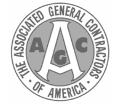Can You Insulate Fire Sprinkler Pipes?
In unheated warehouses, parking garages, or vacation homes that are occupied only occasionally, frozen fire sprinkler pipes are certainly a possibility. This is a concern for two reasons:
- Frozen pipes increase the pressure within the system, potentially causing the pipes to burst. When the temperature rises and the pipes thaw, water flows from the burst section and damages your building.
- The ice blockage within the sprinkler pipes prevents water from flowing out of the sprinkler head if a fire breaks out, rendering the system useless.
How to Prevent Fire Sprinkler Pipes from Freezing
Fortunately, you have a few options for preventing frozen fire sprinkler pipes, including:
- Interior heating: When the temperature outside drops to frigid levels, one of your best defenses against frozen sprinkler pipes is to set the thermostat to 55 degrees Fahrenheit or higher at all times. This allows warm air to reach the pipes and keep them from freezing.
- Exterior insulation: If your fire sprinkler pipes are exposed to cold exterior temperatures, they are more likely to freeze. Insulate unconditioned areas where sprinkler pipes travel to keep the space as warm as possible during freezing weather.
- Dry sprinkler systems: Most sprinklers are wet pipe systems, meaning they contain water at all times. On the other hand, a dry pipe system uses pressurized air or nitrogen gas to keep the pipes clear of water until a sprinkler head activates, at which point a valve opens and releases water into the pipes. Even with a dry system, a heated valve room is required to prevent the water sitting behind the valve from freezing.
- Systems containing antifreeze: Another way to prevent frozen sprinkler pipes is to use an antifreeze-type system. This lowers the water’s freezing point to protect the system even during prolonged exposure to frigid temperatures.
- Pipe insulation: If you have a wet pipe sprinkler system where water sits at the ready at all times, insulating the pipes is an effective way to prevent the water from freezing. Insulation slows heat transfer, helping to keep the water above freezing even as the temperature around the pipes falls. The higher the R-value, or heat flow resistance value, the better the insulation is at protecting your pipes from freezing.
- Heat tracing tape: If the temperature drops low enough for long enough, insulated sprinkler pipes can still freeze. Heat tracing tape prevents this. The flexible electric resistance heating element wraps around the pipe and turns on automatically when the temperature drops below a certain point. This option does require electricity to function, so it will not work during a power outage.
Schedule Fire Sprinkler Services in Houston
Fortunately, in Houston’s warm climate, hard freezes only occur occasionally. However, this makes frozen sprinkler pipes a real possibility because systems aren’t designed with cold snaps in mind. Make sure your pipes are ready for unexpected temperature drops by insulating them!
Kauffman Co. offers comprehensive fire sprinkler services for businesses and residents in Houston. If you need your pipes insulated or serviced in another way, please contact us at (713) 893-1090 to schedule an appointment today.















